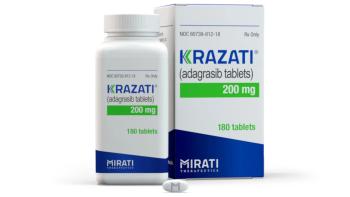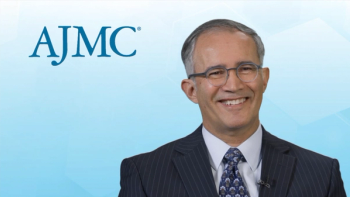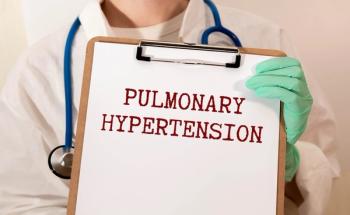
Erythropoiesis-stimulating agent (ESA) treatment before or early after regular transfusion therapy improved overall survival (OS) In lower-risk myelodysplastic syndromes (MDS), a new study found.

Erythropoiesis-stimulating agent (ESA) treatment before or early after regular transfusion therapy improved overall survival (OS) In lower-risk myelodysplastic syndromes (MDS), a new study found.

While the overall effectiveness of collaborative care has been well established, this study aimed to determine which specific components had the most impact.

Phase 2 results reported at the European Lung Cancer Conference show a favorable signal for overall survival for the first-line treatment of KRAS-mutated non–small cell lung cancer (NSCLC). A phase 3 trial is enrolling now.

Medication nonadherence to oral anticoagulants and oral anti–prostate cancer medication has been scrutinized through new research conducted among patients and health care providers and presented by the American Medical Group Association at its 2025 annual meeting, held March 26-29 in Grapevine, Texas.

Hispanic and Latino adults found that while preserving cultural identity may initially benefit health, socioeconomic factors like education level significantly impact diabetes and hypertension rates, highlighting the need for targeted health interventions across diverse subgroups.

Geoffrey Rutledge, MD, PhD, of HealthTap, emphasizes that when care can be delivered virtually, it is more efficient and effective to do so.

Five abstracts showcase critical insights into women’s cardiovascular health, highlighting rising maternal mortality, elevated heart failure risk after ovary removal, and more.

Crystal Aguh, MD, FAAD, Johns Hopkins School of Medicine faculty, highlights the critical need for comprehensive education on hair loss across diverse hair types, stressing the importance of understanding inflammatory pathways for developing targeted therapies.

WVE-N531 demonstrated statistically significant improvements in muscle biopsy measures and functional measures in patients with Duchenne muscular dystrophy (DMD) in the phase 2 FORWARD-53 trial.

For higher-risk multiple myeloma (MM), successful patient selection and monitoring strategies are vital for the management of adverse events and the disease itself.

COVID-19 served as a major catalyst for the widespread adoption of remote patient monitoring, which helps to prevent hospitalizations, improve medication adherence, and enable early interventions by helping providers prioritize high-risk patients.

Weight loss is a key effect of glucagon-like peptide-1 receptor agonists (GLP-1 RAs), but these drugs may also provide liver health benefits independent of this mechanism.

Interval breast cancer rates have remained consistent over 30 years despite age-based screening, highlighting the need for risk-based screening strategies that account for factors like breast density, hormone replacement therapy, and family cancer history to improve early detection.

In the wake of the 2025 measles outbreak and lingering vaccine hesitancy, here are 5 things to know about the safety, efficacy, myths, and more related to childhood vaccinations.

Delandistrogene moxeparvovec, a gene therapy approved for the treatment of Duchenne muscular dystrophy (DMD), was found tolerable and showed signs of efficacy in a real-world cohort.

The European LeukemiaNet (ELN) scoring system showed similar results to the more complicated Integrated Flow Score (iFS) for diagnosing myelodysplastic syndrome (MDS), including in low-risk patients.

New research suggests areas with higher concentrations of microplastics also have higher rates of chronic disease.

Documentation efficiency was higher among younger and male clinicians.

Both refractive and corneal astigmatism saw an increase in prevalence in children after the COVID-19 pandemic, with corneal changes potentially playing a part.

With strong progression-free survival benefits demonstrated in the CABINET trial and updates to National Comprehensive Cancer Network guidelines, this approval reinforces cabozantinib’s role in improving outcomes for patients facing these challenging cancers.

Jaime Murillo, MD, discusses the importance of fostering open communication with patients as a means of encouraging adherence to various treatments.

Annie Antar, MD, PhD, spoke about how long viral clearance could be an indicator of long COVID, but more research would need to be done to confirm this.

A real-world analysis showed a link between continuous glucose monitor (CGM) distribution channel and outcomes for patients with diabetes.

Pulmonary hypertension is a common consequence of interstitial lung disease (PH-ILD), with the highest rate seen among individuals who have idiopathic pulmonary fibrosis. Overall, most cases of PH in the setting of ILD are mild.

Crystal Aguh, MD, FAAD, Johns Hopkins School of Medicine faculty, advocates for increased funding and education to address hair loss disparities within the African diaspora, emphasizing the need for culturally sensitive treatment and research.

One study found that Black women were 3 times more likely to die of maternal deaths due to cardiovascular disease than White women.

The approval of gepotidacin (Blujepa; GSK) introduces the first new class of oral antibiotics for uncomplicated urinary tract infections (UTIs) in nearly 30 years.

A new Commonwealth Fund report estimates that states' collective gross domestic products would shrink by $95 billion, with total economic output declining by $157 billion.

As managed care pharmacy navigates rapid transformations in policies, high-cost drug strategies, and innovative therapies, the upcoming AMCP annual meeting will provide critical insights into legislative impacts, drug affordability, formulary design, and emerging treatment trends.

New phase 3 data provide reassurance on safety, tolerability, and overall benefit-risk of mirvetuximab soravtansine (Elahere) for patients with folate receptor alpha-positive (FRα+), platinum-resistant ovarian cancer.

259 Prospect Plains Rd, Bldg H
Cranbury, NJ 08512
© 2025 MJH Life Sciences®
All rights reserved.
